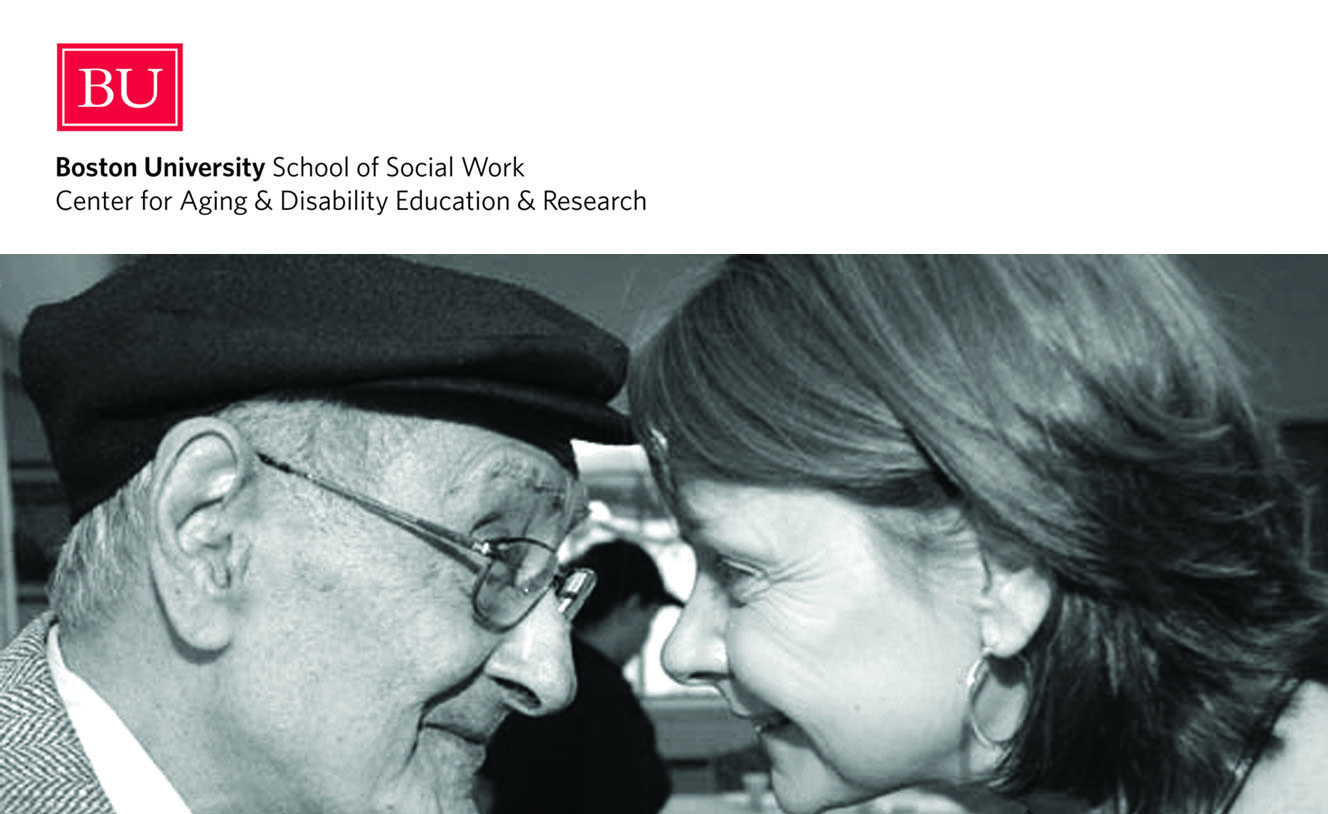Professor Keefe Named Partner in SAMHSA’s New Center of Excellence in Behavioral Health Disparities in Aging

BU CADER Advocacy Helps Pass Increased State Funding for Elder Mental Health Outreach
Bronwyn Keefe (PI) and the BU Center for Aging & Disability Education & Research (CADER) will partner with Rush University Medical Center in a 5-year, $3.5 million grant funded by the Substance Abuse and Mental Health Services organization (SAMHSA) to create a new research center called Engage, Educate, Empower for Equity: E4, The Rush Center of Excellence for Behavioral Health Disparities in Aging.
The E4 Center’s mission is to expand workforce capacity through innovative training of practitioners. Their focus is to ensure that community-based providers can implement evidence-based practices and programs (EBPs) in their work with vulnerable older adults who experience the greatest behavioral and physical health disparities.
The Center will target the healthcare workforce to reduce behavioral health disparities in older adults in four strategic priority areas: 1) depression and suicide; 2) substance use disorders; 3) serious mental illness; and 4) socioeconomically disadvantaged and underserved ethnic and racial minority groups.
To achieve this, the E4 Center will educate providers on the knowledge, skills, and attitudes necessary for delivering high-quality behavioral health services for older adults. The training will leverage both existing online training developed by the E4 Center team and the development of new resources. It will also incorporate the 4Ms (What Matters, Medication, Mentation, Mobility) of an Age-Friendly Health System, which are critical factors in eliminating behavioral health disparities for older adults. From this foundation, the E4 Center will provide extensive, expert-led training in EBPs addressing mental health and substance use prevention, treatment, and recovery support services for older adults, as well as technical assistance to assure effective and efficient implementation.
The E4 Center will build on its extensive experience catalyzing integrated partnerships between health systems and community-based organizations (CBOs) to create age-friendly health communities through a Partnership Toolkit for the providers and a Business Case Toolkit for administrators to be able to offer these services in welcoming and inclusive environments.
Patient and family caregiver engagement is also a priority. The Center will create, refine, and disseminate older adult engagement and educational resources to health care systems, clinics and CBOs that focus on scaling and spreading culturally tailored EBPs to a wider population– including not only licensed mental health providers but also CBOs, direct care workers, and the aging network – in highly varied modalities and lengths to meet learner preferences.
During the five-year grant, the E4 Center plans to reach 15,000 learners at a rate of nearly 3,000 per year. In this period of growth, the E4 Center expects to have a broad and lasting impact on the care of our most vulnerable older adults with mental health and substance use disorders.
CADER’s Legislative Advocacy
CADER joined forces with eleven members of the Massachusetts Aging and Mental Health Coalition to successfully advocate for an increase in funding for Elder Mental Health Outreach Teams (EMHOT), signed into law on Dec. 11, 2020. The funding increase will help address the growing need for outreach services and reduce reliance on expensive congregate care settings such as nursing homes which were disproportionately impacted by the COVID-19 pandemic. Older adults face significant barriers to treatment including lack of transportation, isolation, high rates of stigma, and difficulty scheduling appointments due to co-occurring cognitive disorders. These barriers are compounded for as many as 1 in 3 older adults who are living with a mental health or substance use condition.
Successfully supporting older adults who have or are at risk for behavioral health conditions requires accessible in-home supports that foster engagement and trust. Since its inception in 2016, EMHOTs have worked with older adults in their own homes to connect them with vital community services and resources addressing the broad range of needs associated with behavioral health issues, including housing insecurity, chronic diseases, loss of social connectedness, and financial challenges. In FY20, seven EMHOT sites serving 81 communities across the Commonwealth offered 7,504 hours of short-term counseling, case management, referral, and crisis intervention.